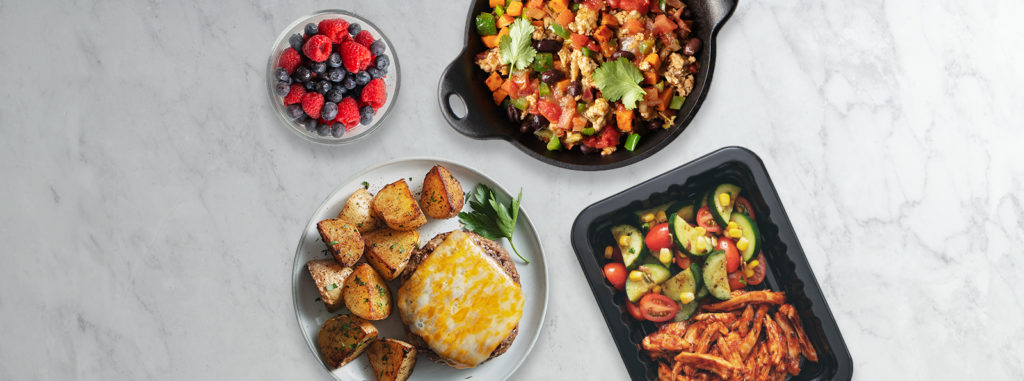ARTICLE AT A GLANCE
Calories are the foundation of nutrition. They are units of energy we consume and burn off all day, every day. They are listed at the top of every nutrition label, and they are the notorious defining variable of several diets.
But how important are calories to your success?
Finding the right balance of calories in versus calories out is fundamentally important. This energy balance drives all the functions of the human body – from the way our brain is able to read and interpret this article to the way our muscles move our fingers to scroll to the next paragraph on our phone or computer.
Energy from calories also controls the big picture things, like how we generally feel throughout the day, how our hormones are regulated, how much energy we have to exercise, how we sleep, and, of course, how we regulate our weight.
Calories seem simple enough, but achieving the perfect balance isn’t always as easy as we would like.
Counting Calories – Is It Worth It?
Counting calories isn’t necessarily practical, either. In fact, the tedious work of meticulously logging and counting calories can become exhausting and lead to burnout in an attempt at healthy eating, sometimes making this practice counterproductive altogether.
Imagine feeling so much pressure to precisely count calories that you begin measuring out all of your food portions and avoiding restaurants and social gatherings where nutrition information and serving sizes aren’t as readily available. This is a common predicament many dieters find themselves in, because misinformation leads them to feel this is the only way to successfully lose weight – and it’s understandably frustrating.
The disillusionment of this habit can propel dieters into a binge, enough to make them want to give up on a diet completely. The guilt of a binge or a period of unhealthy eating often then leads back into a new attempt at calorie counting and restriction – enter, yo-yo dieting.
Not only is counting calories a tedious task, it’s not particularly helpful as a method on its own. Our caloric needs change daily, depending on how much energy we are burning. Further, solely focusing on calories can ignore other critical aspects of nutrition, like macronutrient ratios (fat, protein, carbohydrates) and micronutrient quality.
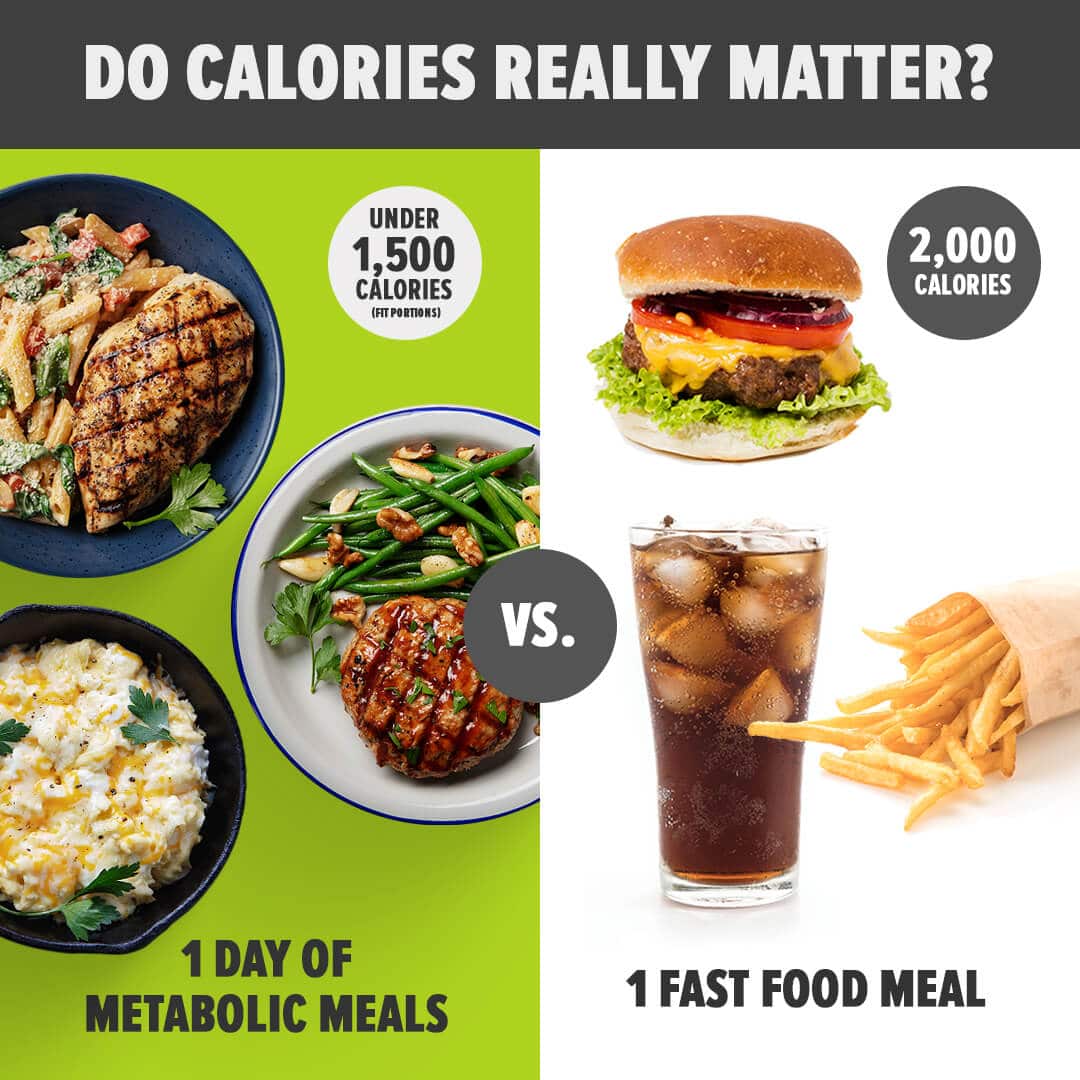
Eating 2,000 calories of chips, as it turns out, is truly not the same as eating 2,000 calories of high quality whole foods. Our bodies register these nutrients, digest them, and use them completely differently.
Identifying Your Caloric Range
While calories aren’t the be-all and end-all of a healthy lifestyle, it is helpful to have a general idea of your caloric range, or a rough estimate of how many calories you should aim to eat in a day to meet your individualized goal. Using a range rather than a strict calorie count will allow for flexibility, remove the pressure to perfectly count and log every calorie, and account for the inevitable daily fluctuations.
Determining your individual daily range for caloric intake depends on first finding your daily caloric expenditure — and then either adding to it, subtracting from it, or maintaining it, depending on your weight goal.
Daily caloric expenditure is based on four variables: basal metabolic rate (BMR; calories needed to simply sustain life at rest), the thermic effect of food (calories needed for digestion), the thermic effect of activity (calories burned through exercise), and non-exercise activity thermogenesis (NEAT; the calories burned through unstructured movement throughout the day, like walking around at work, unloading the dishwasher, and even fidgeting).
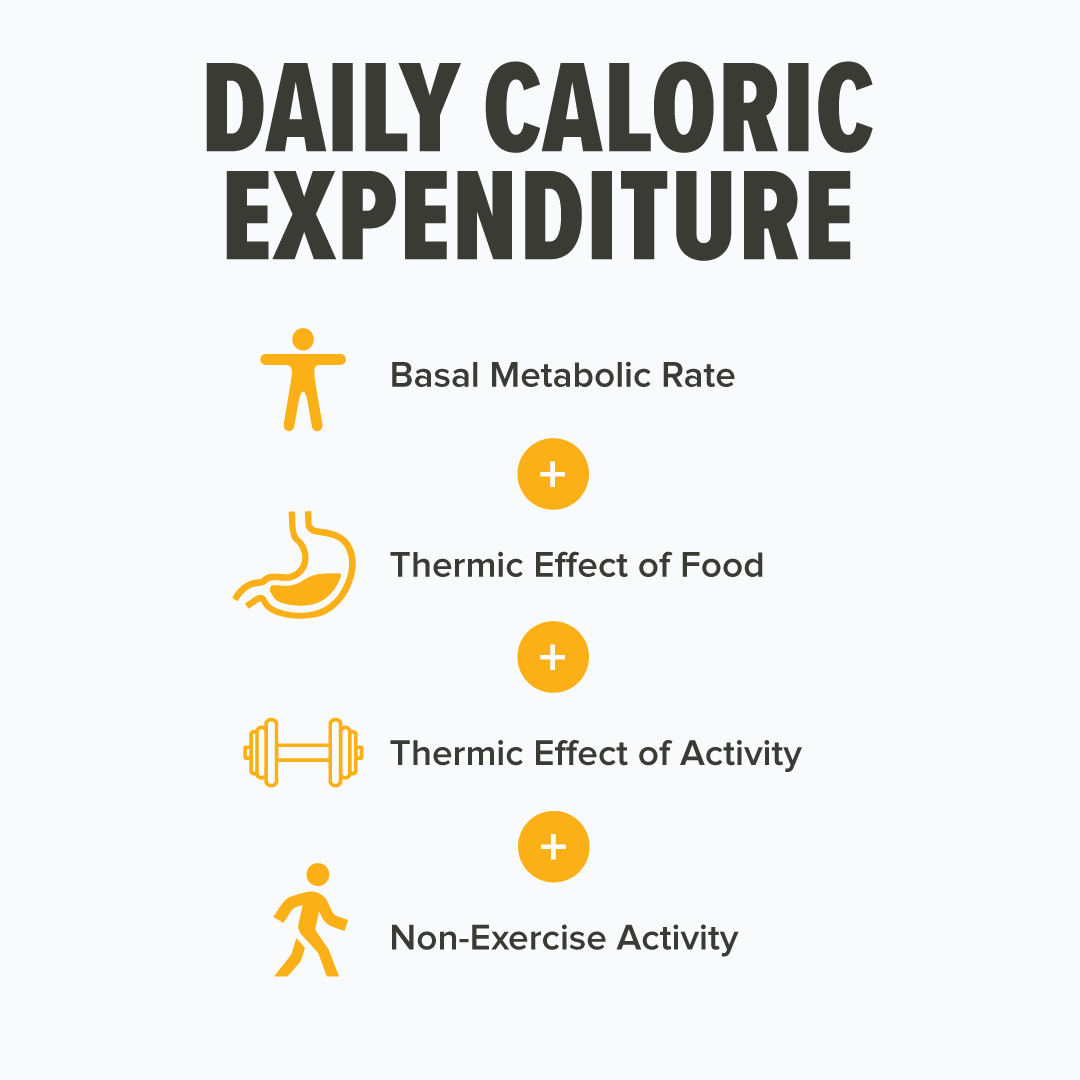
The two biggest variables typically used to really calculate caloric expenditure are BMR and exercise activity level, as the thermic effect of food and non-exercise spontaneous activities are very difficult to accurately measure and less important in the overall picture. BMR is an equation which factors in age, gender, height, and weight.
Once you know your BMR, an “activity multiplier” is used to account for how often you exercise in a standard week. BMR x activity multiplier = estimated caloric expenditure. There is a helpful online calculator which can quickly do this math for you.
Once you determine your caloric expenditure, this is the number of calories you need to consume daily to maintain your current weight. One pound is equivalent to 3,500 calories. Therefore, eating 500 calories more than this per day will lead to one pound of weight gain per week (500 calories x 7 days = 3,500 calories = 1 pound).
Inversely, eating 500 calories less per day (or burning 500 additional calories per day) will lead to one pound of weight loss per week, which is a healthy rate for sustainable weight loss.
As an example, if a 5’6”, 170 lb, 25-year-old female exercises 4 days per week, her daily energy expenditure is 2,447 calories/day. In order to lose one pound of weight per week, her goal calorie intake would be 1,947 calories/day. In this case, I typically recommend using a flexible range of 1,900-2,100 calories/day. I recommend weighing in every two weeks, and adjusting from there if needed.
Moving Beyond Calories: Helpful Tips
1. Focus on nutrient density.
When you eat the proper ratio of macronutrients with high-quality micronutrients, you feel satisfied for longer; your body isn’t deficient in any of its needs, so you’re able to avoid cravings.
For instance, if you eat a sugary, highly processed cereal for breakfast, your body isn’t getting all the nutrients it needs and it causes you to rebound to crave even more highly processed foods just a couple hours later, because you’ve registered this as a quick and accessible energy source. To avoid this cycle, meals containing a protein source, a healthy fat, and a whole-grain carbohydrate are preferred.
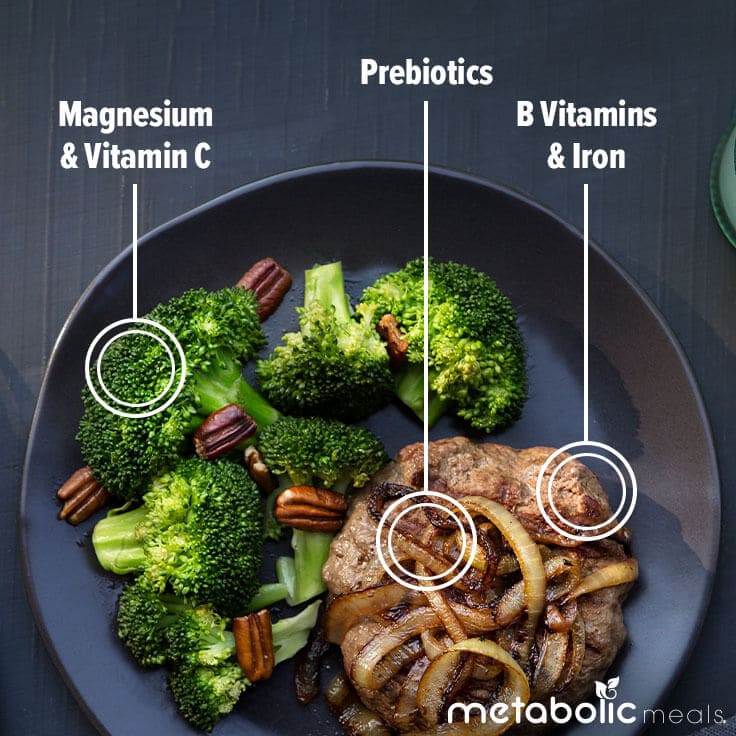
If reaching your weight goal includes needing to eat in a caloric deficit (like 500 calories less per day than your calculated expenditure, as above), it’s much more feasible and enjoyable to meet this goal when you feel satiated from high-quality foods. Plant-based foods and fiber-rich foods take up more space in your stomach, so you feel full quicker during a meal and subsequently eat fewer calories overall.
Eating in a caloric deficit doesn’t need to feel miserable, and it shouldn’t! An easy trick to get the most out of your healthy meals is to eat the plant-based portion of your meal first (i.e. fruits, vegetables, salad), and eat lots of it; you’ll fill your stomach space with these micronutrient-rich foods and need less of the more calorie-dense “main course” afterwards.
2. Consider when and how often you’re eating.
Meal timing has been a topic of particular interest in recent years as intermittent fasting has become a mainstream sensation.
Unfortunately, it’s quite technically challenging for researchers to perform high quality studies on nutrition in general, as human eating behaviors are impossible to precisely control, and subjects can’t be blinded to what type of food they’re eating. There’s also large individual variability on how each person responds to a diet program, even if the food consumed is the exact same.
That being said, intermittent fasting seems to lend itself to a lower calorie intake overall. The most common method of intermittent fasting is a 16/8 split – that is, allowing yourself to eat during 8 hours of each day (often noon-8pm) and fasting for the other 16 hours.
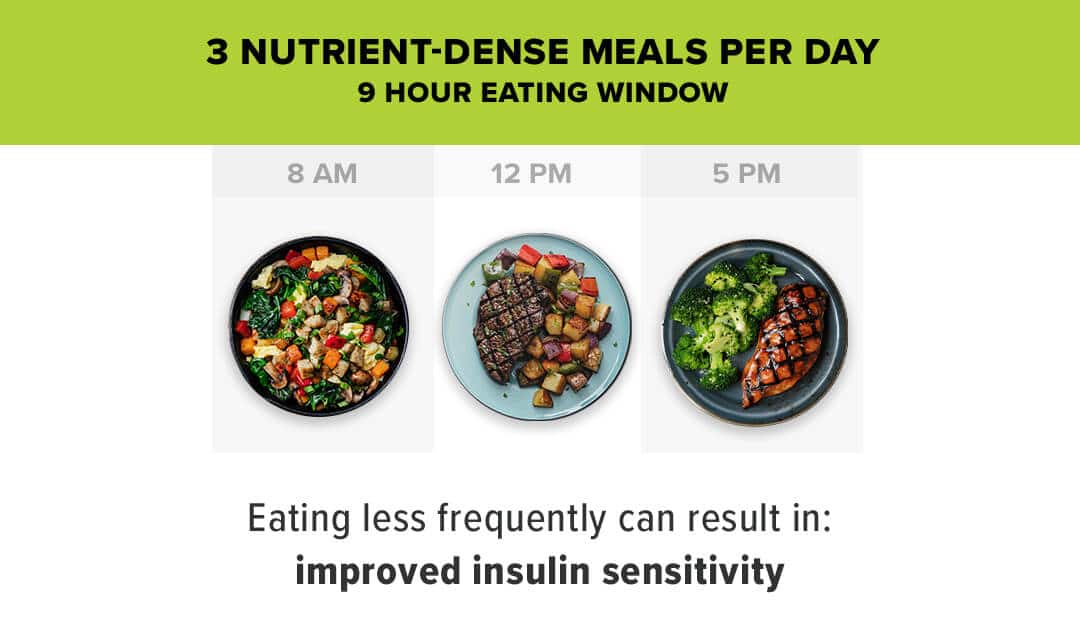
With a smaller window of time to eat, and with eliminating mindless nighttime snacking (a common pitfall amongst dieters), fewer total calories are consumed in most cases.
3. Practice mindfulness while eating.
Speaking of mindless snacking, mindfulness in general is a bonus tip to incorporate into nutrition habits. It’s natural to eat without putting much thought into the process itself, because eating is a relatively automatic process for our brains. It doesn’t take much skillful execution. It’s also easy to eat while distracted by our phones, computers, TVs, or whatever else is going on around us.
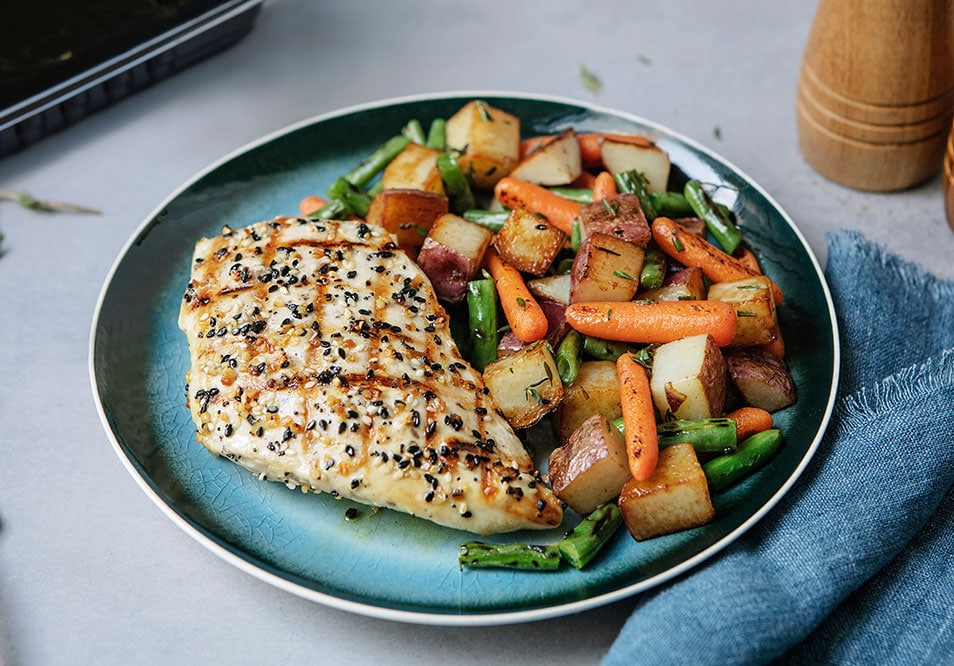
It takes practice to slow down and eat mindfully but appreciating each bite and thoughtfully focusing on the taste of each bite can help us recognize signals of fullness sooner and save calories overall.
In the end, meeting your individual caloric goals with high-quality, nutrient-dense foods to fuel your mind and body should feel accessible and attainable. Weight loss can be made much more bearable by incorporating these tips and tricks. Once healthy lifestyle habits are formed, the journey can and should be as rewarding as the outcome.
Dr. Aloiya Earl is a Sports Medicine Physician. She received her Bachelors of Science in Exercise Science from the University of South Carolina, her M.D. from The University of Toledo College of Medicine, and she completed her residency training at The Ohio State University. After residency, she completed a fellowship in sports medicine at the University of Alabama. She is a member of the American Medical Society for Sports Medicine.






